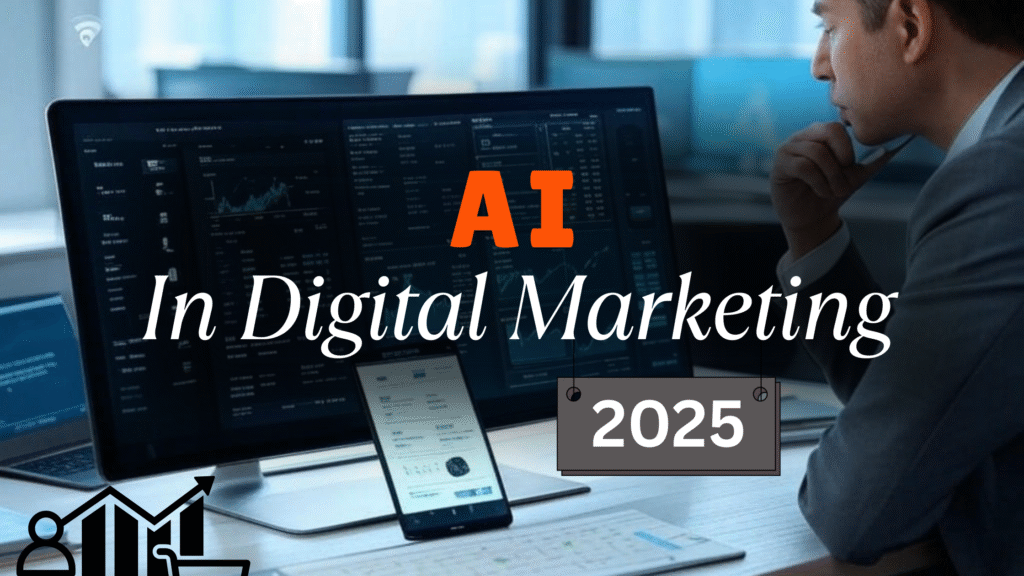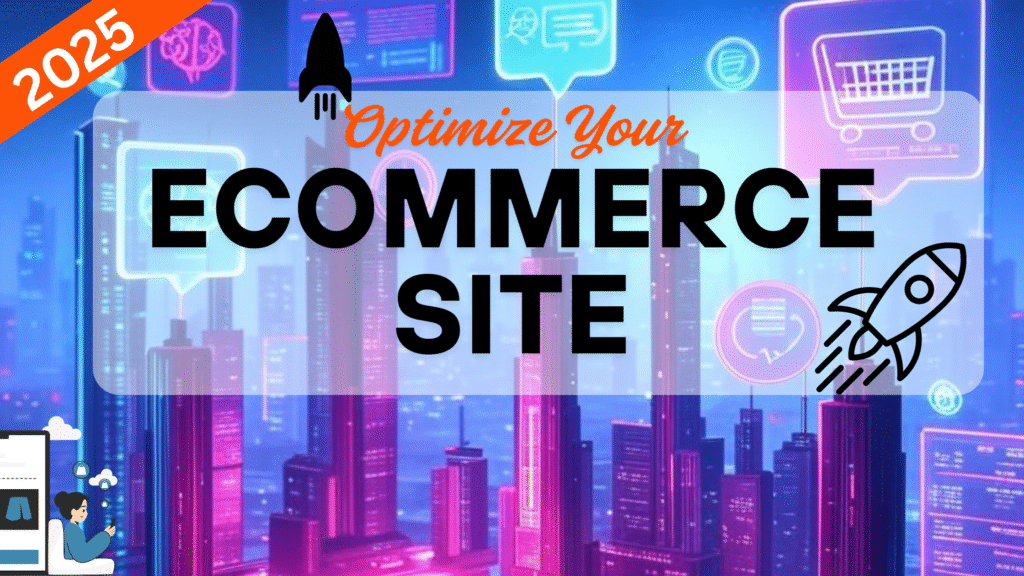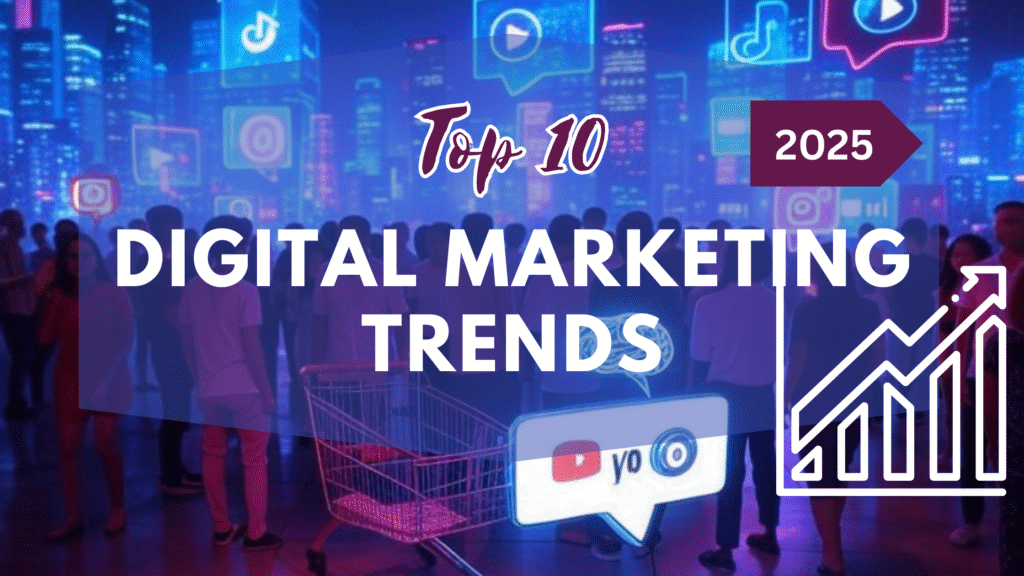Introduction
In 2025, AI-driven personalization is revolutionizing digital marketing, offering brands the ability to deliver highly tailored experiences that boost engagement and conversions. With advancements in machine learning, real-time data processing, and predictive analytics, AI enables brands to connect with customers on an individual level. This guide explores why AI personalization matters, provides actionable strategies for implementation, and addresses key considerations for success in 2025. Targeting high-searched keywords like “AI personalization,” “machine learning in marketing,” “customer experience,” and “data privacy,” this blog equips marketers to leverage AI effectively in a competitive landscape.
Why AI Personalization Matters
AI personalization is transforming how brands interact with consumers, driven by its ability to analyze vast datasets and deliver relevant content. Key insights highlight its significance:
AI personalization increases conversion rates by 20%, as it provides tailored experiences that resonate with individual preferences (Smart Insights).
74% of consumers expect personalized content, with 63% more likely to purchase from brands that offer it (Exploding Topics).
Real-time data and predictive analytics allow AI to adjust recommendations dynamically, improving customer satisfaction by 15% (Search Engine Journal).
However, 65% of consumers express concerns about data privacy, underscoring the need for transparent and ethical AI practices (Search Engine Journal).
Beyond conversions, AI personalization enhances customer retention, with personalized emails achieving 6x higher transaction rates than generic ones (Smart Insights). Integrating AI with CRM systems further refines targeting, making it a must-have for modern marketing.
Key Strategies for AI Personalization Success in 2025
To harness AI personalization effectively, brands must adopt strategies that balance technology, user needs, and regulatory compliance. Below are seven actionable approaches:
1. Leverage Real-Time Data
AI thrives on real-time data, enabling instant adjustments to content based on user behavior. For example, an e-commerce site can display products based on a user’s current browsing session, increasing relevance and engagement.
Why It Matters: Real-time personalization improves user experience, reducing bounce rates by up to 20%.
Actionable Step: Implement tools like Google Optimize to test real-time content adjustments and monitor performance.
2. Integrate AI with CRM Systems
Combining AI with Customer Relationship Management (CRM) systems allows for precise segmentation and targeting. By analyzing historical data, AI can predict customer needs and tailor marketing messages accordingly.
Why It Matters: CRM integration boosts campaign effectiveness, with personalized emails driving 6x higher transactions (Smart Insights).
Actionable Step: Use platforms like Salesforce Einstein to integrate AI with your CRM and segment audiences.
3. Offer Personalized Product Recommendations
AI algorithms can analyze browsing and purchase history to suggest relevant products. E-commerce giants like Amazon use this approach, with personalized recommendations accounting for 35% of their revenue (Exploding Topics).
Why It Matters: Recommendations increase average order value by 10-30%.
Actionable Step: Deploy recommendation engines using Algolia or Dynamic Yield on your site.
4. Ensure Privacy and Consent Compliance
With 65% of consumers worried about data privacy, brands must adopt transparent practices. Comply with regulations like GDPR and CCPA by obtaining explicit consent and providing opt-out options.
Why It Matters: Privacy compliance builds trust, with 80% of users more likely to engage with brands that protect their data (Search Engine Journal).
Actionable Step: Use OneTrust to manage consent forms and ensure GDPR/CCPA compliance.
5. Optimize Content with Predictive Analytics
Predictive analytics uses machine learning to forecast user preferences, enabling proactive content delivery. For instance, AI can predict when a user might need a product refill and send a timely offer.
Why It Matters: Predictive personalization increases click-through rates by 15% (Smart Insights).
Actionable Step: Integrate IBM Watson for predictive analytics to anticipate customer needs.
6. Conduct A/B Testing for Refinement
A/B testing allows brands to compare AI-driven personalization variants to optimize performance. Test different recommendation styles or email subject lines to identify what resonates most with your audience.
Why It Matters: Testing improves ROI by fine-tuning AI algorithms based on real user feedback.
Actionable Step: Use Optimizely to run A/B tests on personalized content and analyze results.
7. Focus on Omnichannel Personalization
AI should deliver consistent personalization across email, social media, and websites. An omnichannel approach ensures a seamless customer journey, enhancing satisfaction and loyalty.
Why It Matters: Omnichannel strategies boost customer retention by 10% (Exploding Topics).
Actionable Step: Use Adobe Experience Platform to unify data across channels for consistent personalization.
Comparing AI Personalization Tools
Tool | Key Feature | Best For |
|---|---|---|
Salesforce Einstein | CRM integration | Targeted email campaigns |
Algolia | Product recommendations | E-commerce sites |
IBM Watson | Predictive analytics | Content forecasting |
OneTrust | Privacy compliance | Data regulation adherence |
Optimizely | A/B testing | Optimization testing |
Case Studies
Netflix’s AI Success: Netflix uses AI to personalize content recommendations, contributing to 80% of viewer activity and reducing churn by 10% (Exploding Topics).
Sephora’s CRM Integration: Sephora’s AI-powered CRM increased personalized offers, boosting sales by 15% (Smart Insights).
Challenges and Considerations
AI personalization comes with challenges:
Data Privacy: Balancing personalization with privacy requires robust compliance measures.
Implementation Costs: AI tools can be expensive, necessitating a phased approach for small businesses.
Algorithm Bias: AI must be monitored to avoid skewed recommendations based on biased data.
To address these, start with affordable tools, prioritize privacy, and regularly audit AI outputs for fairness.
Conclusion
Harnessing AI personalization in digital marketing for 2025 offers a competitive edge by delivering tailored experiences that drive conversions and loyalty. By leveraging real-time data, integrating with CRM, and ensuring privacy compliance, brands can maximize impact. Regular testing and an omnichannel approach further refine results. Begin with a pilot project using accessible AI tools, focus on user trust, and scale based on performance. With these strategies, you’re poised to lead in the AI-driven marketing era.


